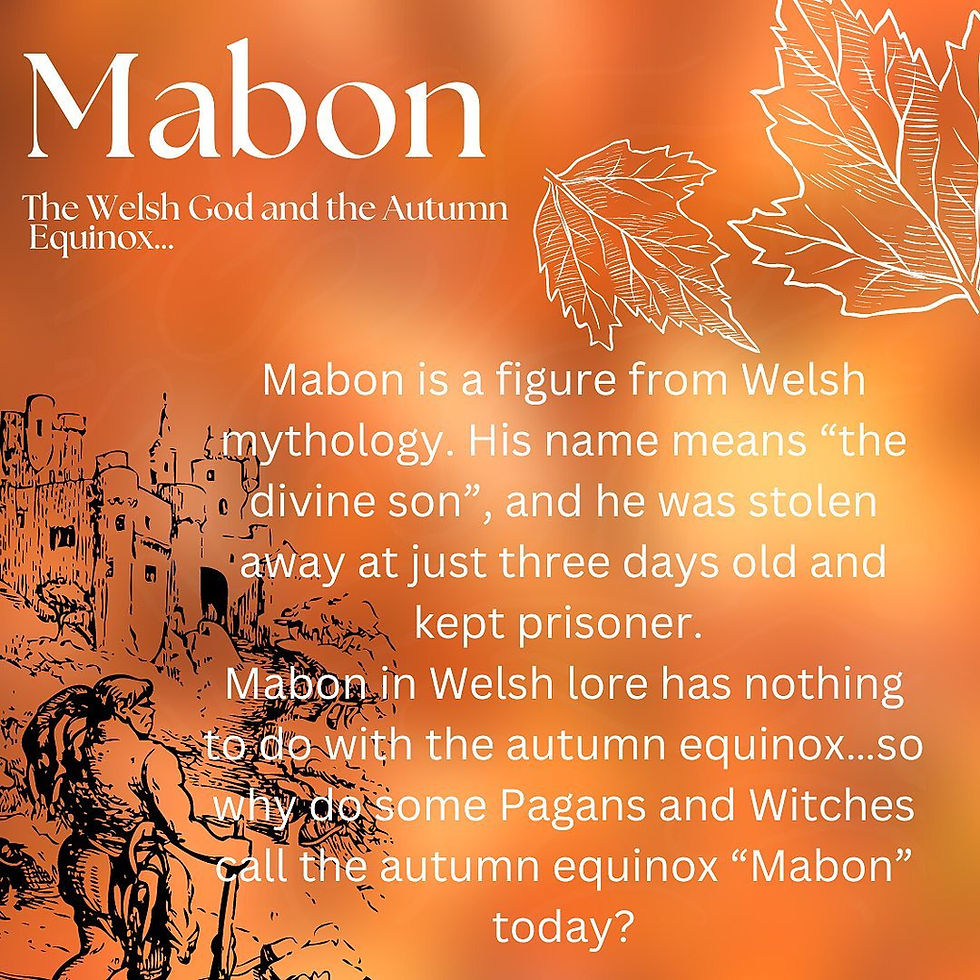In modern paganism one of the spokes of the wheel of the year is the celebration of “Mabon”. The autumn equinox. But where does this celebration get its name?

Mabon is a figure found within Welsh mythology. He can be found in a few obscure references here and there, but the main tale he is known for is “How Culhwch won Olwen”. One of the Welsh romance legends.
In order to marry his love, the hero of this tale, Culhwch, must undertake a series of “impossible tasks”. One of which is to track down and hunt the mystical boar, the twrch trwyth. Unfortunately the twrch trwyth can only be tracked by a dog that belongs to someone named Mabon. Mabon is the son of Modron. His name means “the divine son”. Unfortunately, no one knows where Mabon is. He was stolen away from his mother at just 3 days old. Culhwch, along with King Arthur and others track down the “ancients of the world” to see if they know where Mabon is.
The ancients of the world are ancient animals. Each one says they do not know where Mabon is and points them to an older ancient. Eventually they come to an ancient salmon who knows exactly where Mabon is! They ride upon his back in the river Severn. Eventually they come to Caerloyw (Gloucester) where Mabon is kept prisoner. They set him free and he helps them track down the mystical boar.
Looking at Mabon’s appearances in Welsh myth and his cognates with older Gaulish and other Celtic deities…we can ascertain that he:
represents/is associated with youth.
is associated with Gloucester and the river Severn.
was trapped for most of his life.
is a divine son of the divine mother (Modron).
has similarities to the Roman God Apollo (Roman style shrines to Maponos correlate him with Apollo).
is connected to hunting.
So what does any of that have to do with the autumn equinox?
Well… nothing!
The autumn equinox was named Mabon in the 1970’s by Aidan Kelly, who was searching for a Celtic equivalent to the tale of Kore or Persephone from Greek mythology. Mabon’s youthfulness, his imprisonment, the fact he was taken away from his mother…these were the similarities Kelly found between the tales of Kore and Mabon.
However, some say this doesn’t really fit. Mabon has no relation to the autumn equinox in Welsh myth.
I think it’s perfectly fine to call the Autumn equinox “Mabon”. Just so long as we accept the modernity of the term in relation to the autumn equinox, and that it is pronounced “Mah-Bon” and not “May-bun”
I also think, as members of the Grand Priory of England & Wales, we should familiarise ourselves with the Welsh origins of Mabon and indeed with other Welsh folk tales and traditions. It would be wonderful if the autumn equinox became a time to honour Mabon, the spirit of the Welsh bardic tradition, and Welsh myths in general.

Comments